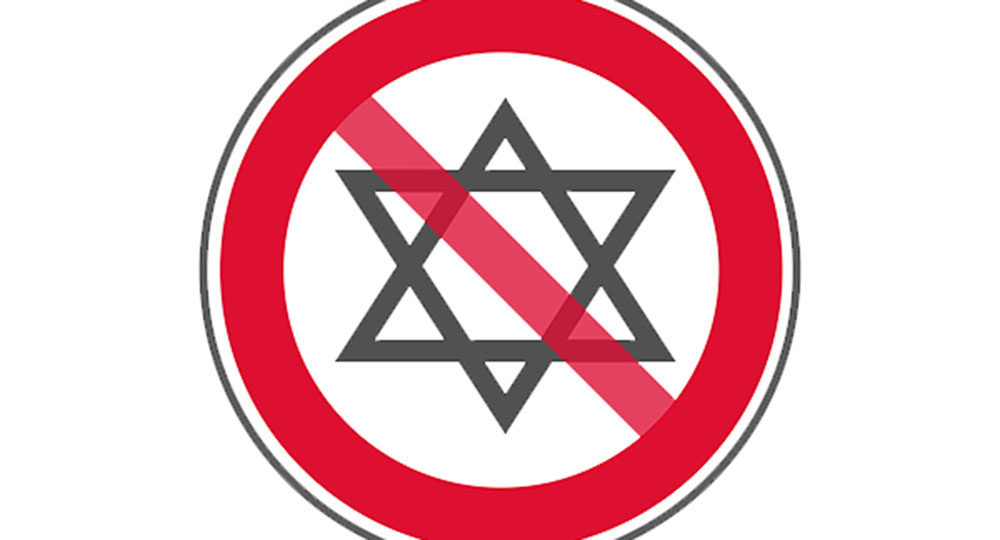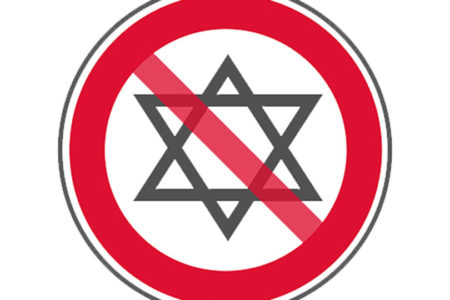How Anti-Semitism Corrupted the Church
Almost 2,000 years have transpired since Israel as a nation failed to accept Jesus as Messiah and Redeemer. Who would carry God’s message of salvation to the world while Israel was spiritually sidelined (Rom. 11)?
In eternity past God determined to form a new entity to do His work during this interval: the church. The church would be international in scope, comprised of believing Jews and Gentiles from all over the world (Eph. 2:11—3:11). It was born on the Day of Pentecost, 10 days after Jesus ascended to heaven (Acts 2; 11:15).
Jesus ordered the church to take the gospel (“good news”) of His death, burial, and resurrection to all people the world over and make disciples of all nations (Mt. 28:19–20; Mk. 16:15). Now Satan had to deal with the church.
First, he tried to destroy it physically through persecution. Although many Jewish and Gentile Christians lost their lives as martyrs, the church continued to grow and spread throughout the Roman Empire. Thus, by the early fourth century, Satan concluded that he could not destroy the church physically.
So he then worked to pervert it through beliefs and practices contrary to the Bible. He used two means to accomplish this goal: the union of church and state, and Replacement Theology.
From A.D. 311 to 380, the Roman government changed from trying to annihilate Christianity to making it the only religion allowed. Because of this marriage of church and state, large numbers of unbelievers came into churches, flooding them with pagan beliefs and practices.
In addition, Gentile church leaders took up Greek philosophical and anti-Semitic views. Less than a century after the apostles, key Gentile church leaders formulated the idea that, since Israel as a nation rejected Jesus, God permanently rejected Israel and replaced it with the church. Thus the church became the “Israel of God.” This erroneous view is called Replacement Theology.
The combination of pagan beliefs and practices with Greek philosophy and anti-Semitism radically changed organized Christendom’s ecclesiology (nature and function of the church) and eschatology (doctrine of future things).
In Ecclesiology. Since pagan religions and Israel both had multitiered priest-hoods, the church developed a priest-hood, shifting leadership from elders and pastors to one high priest at the top and different levels of priests underneath.
And since pagan religions and Israel had continuing blood sacrifices, the church began changing the significance of communion from a memorial of Jesus’ death (the Scriptural view) to a continuing blood sacrifice of the Savior.
In Eschatology. The church’s original view was Chiliasm (today called Premillennialism, which is The Friends of Israel’s view). Chiliasm maintained that the Messiah would someday come and reign politically as King over the earthly, theocratic Kingdom of God throughout the last age of the present earth’s history.
Because this was also ancient Israel’s view, anti-Semitic, Gentile church leaders rejected it as being “Jewish opinions.” They replaced it with a new view called Amillennialism. This view claimed there would be no future, earthly, political, theocratic Kingdom of God ruled by the Messiah. Instead, the future Kingdom of God foretold in the Bible became the church—a totally spiritual, rather than political, kingdom established by Jesus in conjunction with His First Coming.
The Roman Catholic Church, which adopted Replacement Theology and Amillennialism throughout the Middle Ages, claimed to be the Kingdom of God on Earth foretold in the Bible and therefore believed it had the right to enforce its beliefs and policies on all people. It thereby developed into a powerful religious, political machine that dominated every aspect of life in Western Europe for many centuries, even to the point of setting up and removing kings and emperors and severely persecuting multitudes of Jews.
The reformers of the 16th-century Protestant Reformation broke from the Roman Catholic Church in several areas of ecclesiology and doctrine. They emphasized the following New Testament truths: justification by faith alone, the priesthood of every believer, and the Bible as the authority for faith and practice.
But in eschatology, they rejected Chiliasm (Premillennialism) as “Jewish opinions” and maintained the amillennial view of the Roman Catholic Church.
Satan Infects Protestantism
The Protestant emphasis on justification by faith alone, which took hold in the 16th century, threatened Satan. If people placed their faith wholly in Jesus Christ instead of in their good works, they would become genuine Christians and be transferred from Satan’s kingdom into the Kingdom of God’s Son (Col. 1:13–14). So Satan had to deal with Protestantism.
First, he tried to destroy it physically through persecution. Many Protestants were martyred in Germany, France, the Netherlands, England, and Scotland. But the more he persecuted Protestantism, the faster it spread.
Realizing he could not destroy it, Satan then tried to pervert it with beliefs and practices contrary to the Bible. Over several centuries, he used a series of intellectual movements and philosophies that rejected the Bible as the divinely inspired record of God’s revelation to mankind, trying to undermine the biblical faith of many Protestants.
As a result, by the late 19th and early 20th centuries, significant parts of Protestantism degenerated into unbiblical beliefs. Many denied the Fall and sinful nature of man; the divine inspiration and authority of the Bible; the virgin birth; and the deity, substitutionary atonement, bodily resurrection, and Second Coming of Jesus.
God sovereignly counteracted this satanic perversion through the 18th-century Wesleyan revival in England, the Great Awakening in colonial America, the Second Awakening, revivals headed by D. L. Moody, the Bible school movement, the formation of faith mission boards, and Bible and prophecy conferences.
By the end of World War I, significant parts of Protestantism rejected all forms of divine revelation, which is the only means of knowing if the personal, sovereign Creator-God of the universe exists. Satan used that rejection to launch his current form of attack in his war against God: a growing denial of God’s existence.
That denial has produced the following radical changes in society: an attitude of despair concerning ultimate meaning and purpose for human life; denial of moral absolutes, prompting a breakdown of morality; denial of objective truth for all mankind; denial of an objective standard of right and wrong; a redefinition of tolerance; a radical feminist movement; and a tendency to completely humanize Jesus Christ and to deify mankind.
And it appears that Satan is setting the stage for his greatest assault yet in his war against God.








Voddie Baucom is very vocal about his belief that the church is now the true Israel and that Israel has no real claim to the land, and in fact there is nothing special about the land. This is all in opposition to the promises of the Abrahamic covenant given in Genesis 12:2-3, 13:24-17, and 15:13. It is also in opposition to Romans 11:25, and Amos 9:13-15 just to mention a few scriptures on this subject.
I still am not understanding how a non premillenist eschatology equates to anti semitism? I sometimes listen to RC Sproul & Voddie Baucham and never discerned any hated for Jewish people.
Brilliant. I needed this. I believed all this but wanted a summerised version, so thankyou